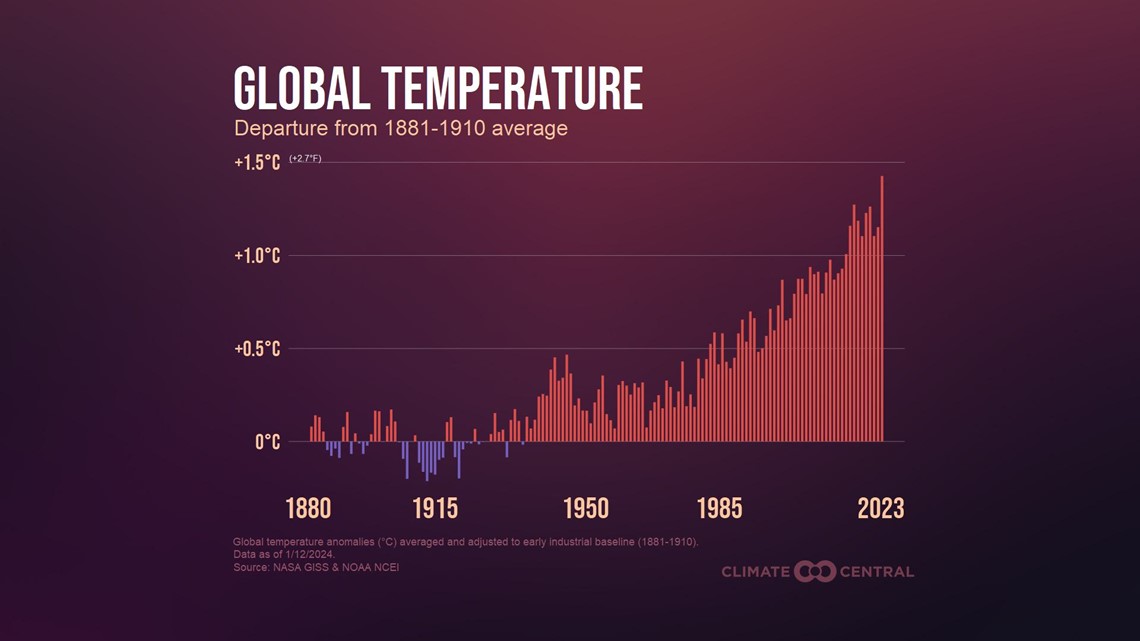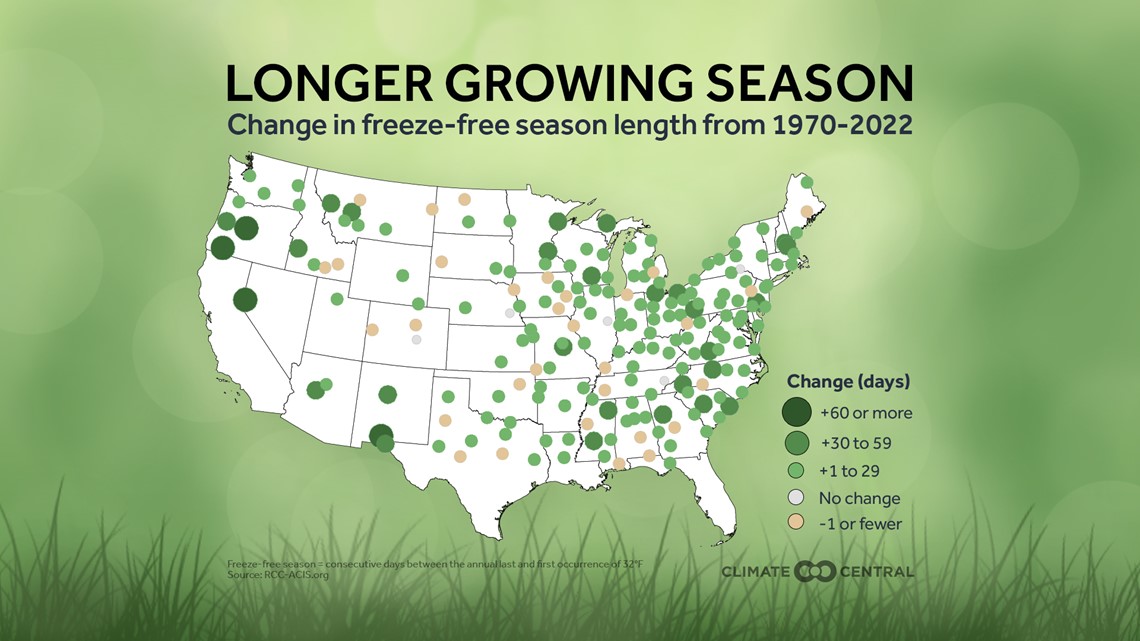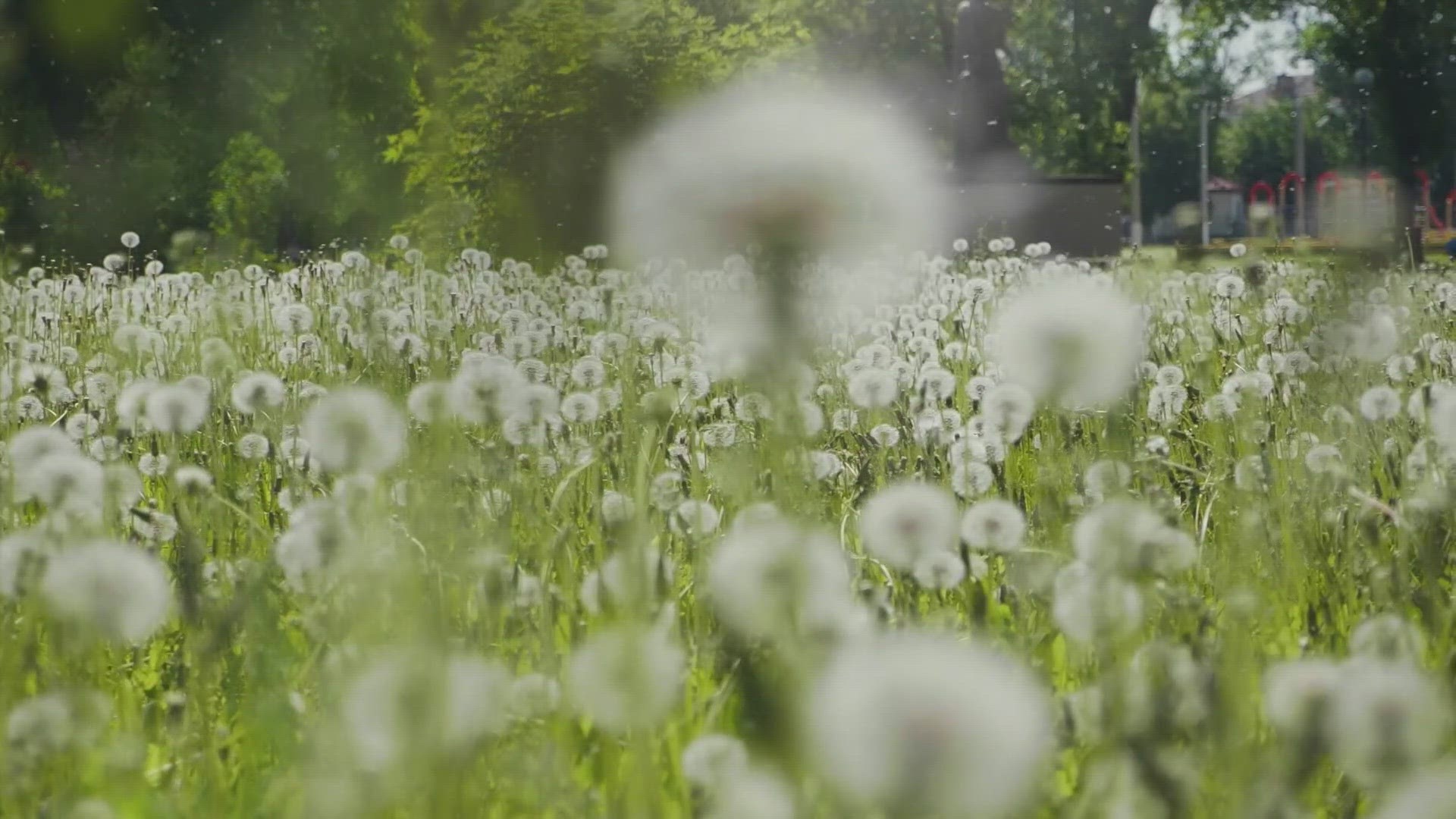JACKSONVILLE, Fla. —
As you've probably noticed, pollen season seems to be stretching longer and feeling more intense than in years past. It's not just your imagination
Dr. Brook Lappe from Emory Rollins School of Public Health, an expert in environmental sciences and climate change, sheds light on these noticeable trends.
The Climate Connection:
Lappe explains that climate change, driven by the increase in carbon dioxide levels, sets off a chain of consequences affecting pollen. Elevated temperatures, shifts in rainfall patterns, and more frequent extreme weather events all play a role. These factors collectively impact the duration, intensity, allergenic properties, and geographic spread of pollen.
The warmer temperatures, a direct result of climate change, lead to longer pollen seasons. This means a wider window for plant pollination and increased exposure for people. Additionally, rising temperatures and higher carbon dioxide levels influence pollen production, resulting in more intense allergy seasons. The changing environment also alters the geographic distribution of plants, further contributing to the impact on pollen.
Urbanization Amplifies the Issue:
In Jacksonville, already considered an allergy capital and ranking among the top-20 for the worst pollen in the country, urbanization adds another layer of complexity. Dr. Lappe highlights the urban heat island effect, where localized areas experience higher temperatures, creating "heat bubbles."
Surprisingly, these urban heat islands may enhance pollen production, especially for resilient plant species. Even in areas with limited greenery, the impact on pollen levels can be disproportionate due to elevated temperatures.


The longer pollen season in Jacksonville, coupled with the urban heat island effect, suggests a potential worsening of allergy conditions. Lappe emphasizes, "More pollen means a longer time of the year where people have to worry about those pollen-related diseases."
Local Implications:
Urbanization exacerbates the impact on pollen seasons, creating localized hotspots where pollen production may be higher than expected. In Jacksonville, being aware of these local factors becomes crucial for residents navigating the challenges posed by extended pollen seasons. Jacksonville is considered to be a allergy capital of the United States according to the Asthma and Allergy Foundation of America.
Those impacts we have already been seeing may only get worse if the current trend continues.



